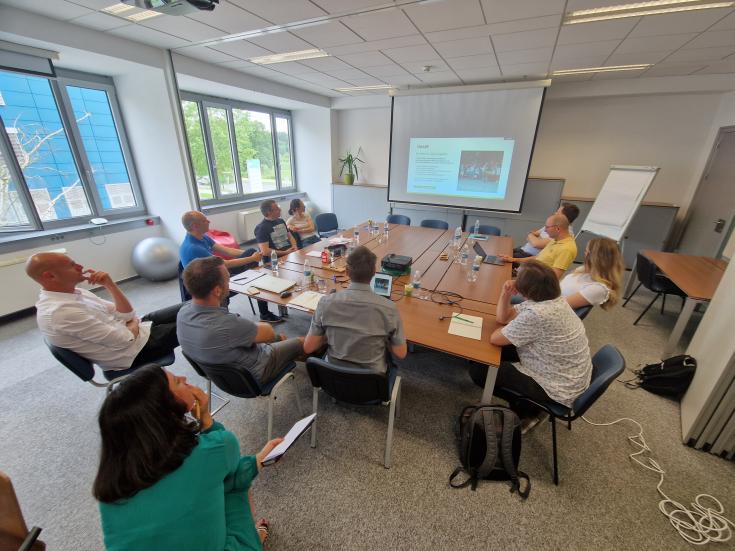Ljubljana's first intraregional stakeholders workshop

Situated at the heart of a state that has heavily invested in highways, the Ljubljana urban region is heavily burdened with the challenges posed by increasing traffic flows. Over the last 35 years, Slovenia's focus on building an extensive network of highways and expressways aimed at enhancing transportation efficiency has inadvertently led to the neglect of public transport systems. This has resulted in an unconnected and underdeveloped public transport network, with a staggering 85% of trips in the region being made by car. The reorganization and modernization of public transport and changes in the travel habits of daily commuters is a need, and therefore addressing transport policies.
In response, the Ljubljana urban region has prioritized sustainable mobility as a central development goal. The adoption of the Sustainable Urban Mobility Plan (SUMP) in 2018 marked a significant step towards transitioning to a low-carbon society. However, after six years, this document requires a comprehensive revision to reflect the evolving needs of the region.
By Joining the project SMAPE, the Regional Development Agency of Ljubljana Urban Region (RRA LUR) aims to address these challenges. The mobility plan is structured around five pillars of sustainable mobility, with a particular focus, within the SMAPE framework, on walking and cycling, and public transport.
On June 7, 2023, RRA LUR organized the first Intraregional Stakeholders workshop under the SMAPE initiative. The workshop sought to engage diverse stakeholders in a dialogue aimed at translating their insights into tangible mobility policy changes. The participants included:
- The Jožef Stefan Institute, Slovenia's leading national research institute.
- Urban Institute of Ljubljana and IPOP – Institute for Spatial Policies, major regional entities in spatial and urban planning.
- CER – Partnership for the Sustainable Economy, Slovenia's largest sustainable business network.
- GoOpti, a prominent demand-responsive transportation company in the region.
The workshop kicked off with a presentation of the project, followed by a focused discussion on shared mobility, particularly in the context of the Ljubljana urban region. Over the last decade, several successful shared mobility systems have been introduced, notably the self-service bike rental system launched in May 2011. This system, which began with 30 stations and 300 bikes, has expanded to ‘82 BicikLJ’ stations with 820 bikes. While shared mobility has laid a solid foundation in urban areas, the consensus among the participants was that it needs to be extended across the entire region.
This first stakeholder workshop represents a significant stride towards redefining the Ljubljana urban region's approach to shared mobility, paving the way for a more sustainable and connected future with its citizens and interested parties.
